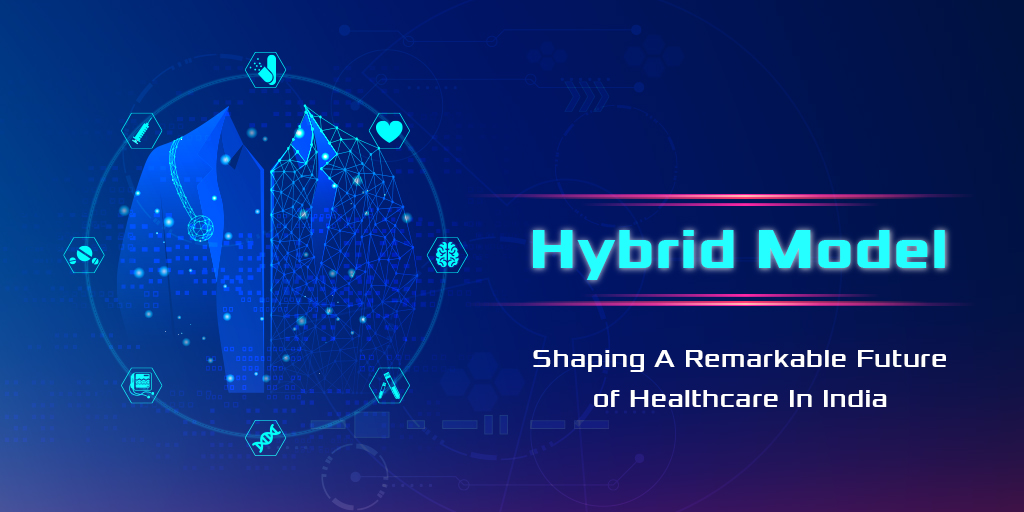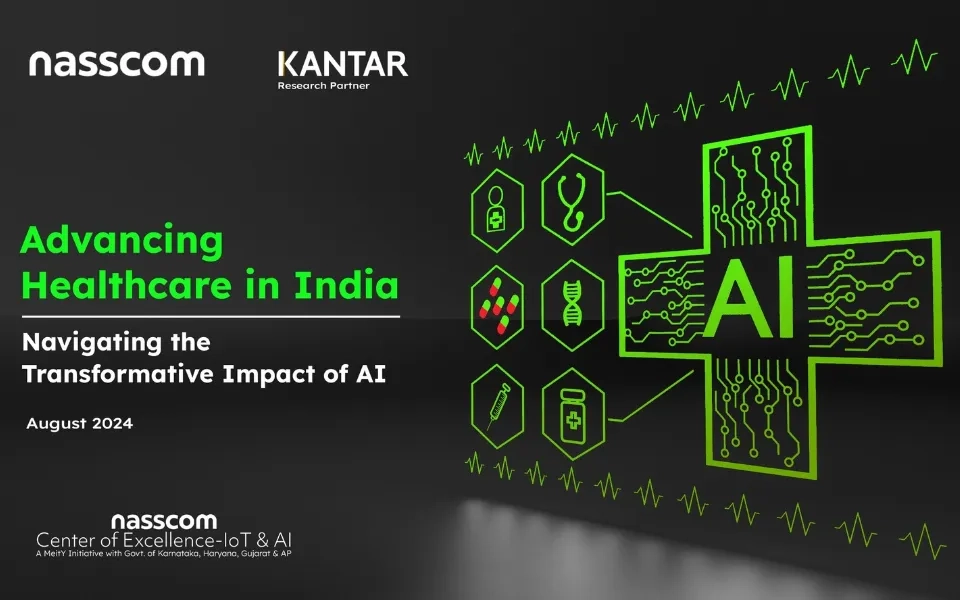
Healthcare in India dates back to its ancient culture of Ayurveda and other medical streams. India has been a center of many revolutionizing medical and healthcare events. India stands with one of the best quality doctors and medical experts around the world. With time, change becomes inevitable. Even in sectors like Healthcare that have to cope with this dynamism, it becomes important that they develop with new technology and advancement.
In India, the Healthcare sector has been lately the fastest growing sector, thanks to the culture of entrepreneurship, innovation and startup culture. Along with such improvements, the government is all set to support this fabric and provide the necessary support at all levels. It is a sincere effort to bring the healthcare sector to a new pedestal and make it a sector worth reaches $280 billion by 2020.
Apprehensions are around, what is next in Healthcare. We have a lot many possibilities to explore and India is already on the path of fulfilling that desire. The intrinsic demand for healthcare services continues to rise in India. So, the future of the health industry is a combination of technology and traditional approach which we can call as a hybrid model.
The new lingo in the market is about Digital Health. It is a broader terminology that can be facilitated through a variety of methods including digital communications, telemedicine and Tele-monitoring. The mechanism also incorporates various monitoring tools such as live video chatting, electronic record transmittal, and mobile health (mHealth) to connect to patients in remote areas with their cell phones. Video calls, in particular, would help patients and doctors to save time and money.
Fueling this idea of Digital health is the advent of the Artificial Intelligence era. Artificial intelligence is a new revolution that will change the face of the healthcare industry in the future. The world has already seen AI do wonders in other fields, automating most of the chores of these sectors. AI would power analysis of data set related to patients, this would further enable to deliver high-quality healthcare facility in lesser time at a lower cost.
Technology can only work in accordance with the human touch when it is accessible. The rising technology will demand a rise in cost as well. In a country where a regular man spends 62% of the savings on medical expenses all by himself, schemes like health insurance become a need.
Health Insurance is a shield that protects individuals from unpredictable medical emergencies in life. The necessity of such a scheme can be well estimated with the rising cost of medical facilities and the cost of treatments in India. It gives monetary cover for the unforeseen medical mishaps. The new trend of providing health insurance under the OPD facility is ready to revolutionize the healthcare sector. Chances of the scheme of OPD Healthcare Insurance becoming mandatory are quite high, given that the rising inflation does not seem to lower anytime soon.
With the growing demand, more and more healthcare programs will be organized in the future by the public as well as private organizations. These healthcare programs include regular health checkups, immunity booster program, promotion of food supply & proper nutrition, affordable healthcare services, and family planning awareness programs.
As mentioned above, AI is all set to revolutionize the healthcare sector. The Internet is one such tool that will do justice to how well the technologies are absorbed in the healthcare industry. The ease of access to fast internet speed has fueled the machinery of healthcare in a better way.
According to a report by the Internet and Mobile Association of India (IAMAI), there are 451 million monthly active internet users at end of the year 2019, India has the second-highest number of internet users after China and this number is increasing rapidly. The increasing number of internet users and easy access to the internet helps the patient as well as the doctor.
This way the patients are now in for treats where they can easily get an online appointment, necessary drugs, access to the pathology report, etc.
However, it is unfair to leave away the challenges that India is currently struggling with to pursue further ventures in the sector. Healthcare in India with new challenges and some old ones are still lingering on and must be addressed.
The foremost of the challenges that the healthcare sector in India faces is regarding the uneven reach of the facilities. While on one hand, the urban centers have good facilities that cater to the needs of city people. The rural reach is extremely lowered and still suffers the wrath of unkempt hospitals and unavailable commute. As per the statistics, a mere 31.5% of hospitals and 16% of hospital beds make it extremely incapable to cater to the demand of 75 % of the Indian population resides. The unwillingness of the doctors to serve in rural regions, just add to the misery of rural healthcare in India.
This would help lead to questioning the reasons behind this lack of reach and the underserved nature of healthcare in India. The answer lies in the allocation of funds and budget constraints that the sector faces. India also suffers from the lack of budget devoted and dedicated to the healthcare sector, this is what can also be termed as Inadequate Outlay for Health. As per the reports of National Health Policy, the government’s expenditure on the health sector has grown by just 1.4 percent in 2018.
This number is not only insufficient but way lower than most of the other countries and also for a population that the country hosts. The absolute percentage stands at only 17.3% for the second most populated country in the world. Along with budget and monetary constraints, Indian healthcare is also devoid of good infrastructure in regions and places. Given these facts about the healthcare in the country, it is not a surprise that India is ranked 145 among 195 countries on the healthcare index.
Plaguing the healthcare sector along with money crunch is the existing social inequalities that mark the Indian social fabric since time immemorial. The bar of “haves and have not” is increasing day by day. This has also contributed to the imbalance growth and uneven presence of healthcare in India. The harsh truth is that the areas in the interiors of the Indian terrain like the hills, rural areas, and other remote distant places are still underserved, while the cities and metropolitans have been receiving great and developed facilities.
Social inequalities occur when the stakeholders are not aware of the path. The idea behind “unity is strength” is playing a pivotal role in the healthcare sector as well. An established system of a holistic developed environment of healthcare is missing in India. There is very little collaboration among the stakeholders in the healthcare sector, and they are not even placed at one single hub. Due to that, patients have to visit different places to fulfill their medical requirements.
The solution to this problem lies in the establishment of a system that brings all the stakeholders in one place and makes them available to the patients.
Similarly one has to understand the importance of an efficient workforce; the sector cannot work efficiently if there are not enough hands to operate. This introduces one of the challenges regarding the Shortage of Medical Personnel in the country. India suffers from a shortage of medical personnel like doctors, a nurse, etc. In India, on an average, a government doctor attends to 11,082 people, more than 10 times than what the WHO recommends.
In this present scenario where data is more important than gold, Indian healthcare suffers from a lack of ease of accessibility of the data. We don’t have any platform to store our data which can be accessed from any place. A good option and innovation in this concern would be health records and cloud computing.
It is indeed the government proposals which play a very constructive role in building up the entire system in a better way. A number of initiatives by the government to bring up a hybrid model have come up in these years. It works in a way that just like the offline and online systems, the private and public enterprise is also incorporated. It is a multi-faceted hybrid model of the healthcare sector.
One step that solves most of the problems in healthcare is the increase in government expenditure. As per the announcements by the government, there are proposals to increase the expenditure on healthcare to 2.5% of the GDP by 2025. A must mention goes to numerable schemes like Pradhan Mantri Jan Arogya Yojana (PMJAY), Ayushman Bharat-National Health Protection Mission, Reproductive, Maternal, Newborn, Child and Adolescent Health (RMNCH+A), Rashtriya Bal Swasthya Karyakram (RBSK), The Rashtriya Kishor Swasthya Karyakram, Janani Shishu Suraksha Karyakaram, National AIDS Control Organisation and many more.
It is a must to analyze how this would affect the hybrid model of healthcare that is being proposed. As well aware citizens, driving innovation and new ideas is welcoming. The startup culture which was purely centralized under manufacturing has now paved its way to healthcare as well.
According to Inc42’s The State of Startup Ecosystem Report 2018, there are a total of 4,892 startups in the Indian health tech space. Last year saw an overall increase of 45.06% in the total investments in health tech startups. Overall, the health tech startups in India raised a total of $504 MN between, 2014-2018. This is a sign of revolutions and more and more space for innovative ideas.
Startups have well accommodated in various categories. Some of these are an online pharmacy, telemedicine, personal health management, home healthcare, fitness & wellness, diagnostics, biotech R&D, medical devices, healthcare IT, Bio-Pharma and genomics. Within India, startups are operating in one of these verticals and are using AI, ML and other modern technology to improve access, affordability, and quality of health care. It is remarkable how far these startups have come.
The doctor-patient culture stands unharmed and has become closer and knitted with the hybrid model. The human touch and technological advancement have given it a shape that blends comfort and quality. The credit goes to the government and the new revolutionary minds. GoMedii is just another feather to the cap when it comes to bringing the hybrid system at work. Fitting well in most of the categories of the expansive healthcare sector in India, GoMedii comes ahead in the value chain. Solving and making things simpler with integrated technology, we are giving our share of easing out the healthcare sector challenges.
Believing in the vision and the need for startups to expand their reach, we have involved ourselves in better management of chronic illnesses, medical records, and prescription management & creating a continuum of care through better communication between patient and doctor. A hybrid model is the call of the hour, where the patients and doctors are able to connect better, process with quality and provide solutions to problems and challenges of the health care sector in the country.
















